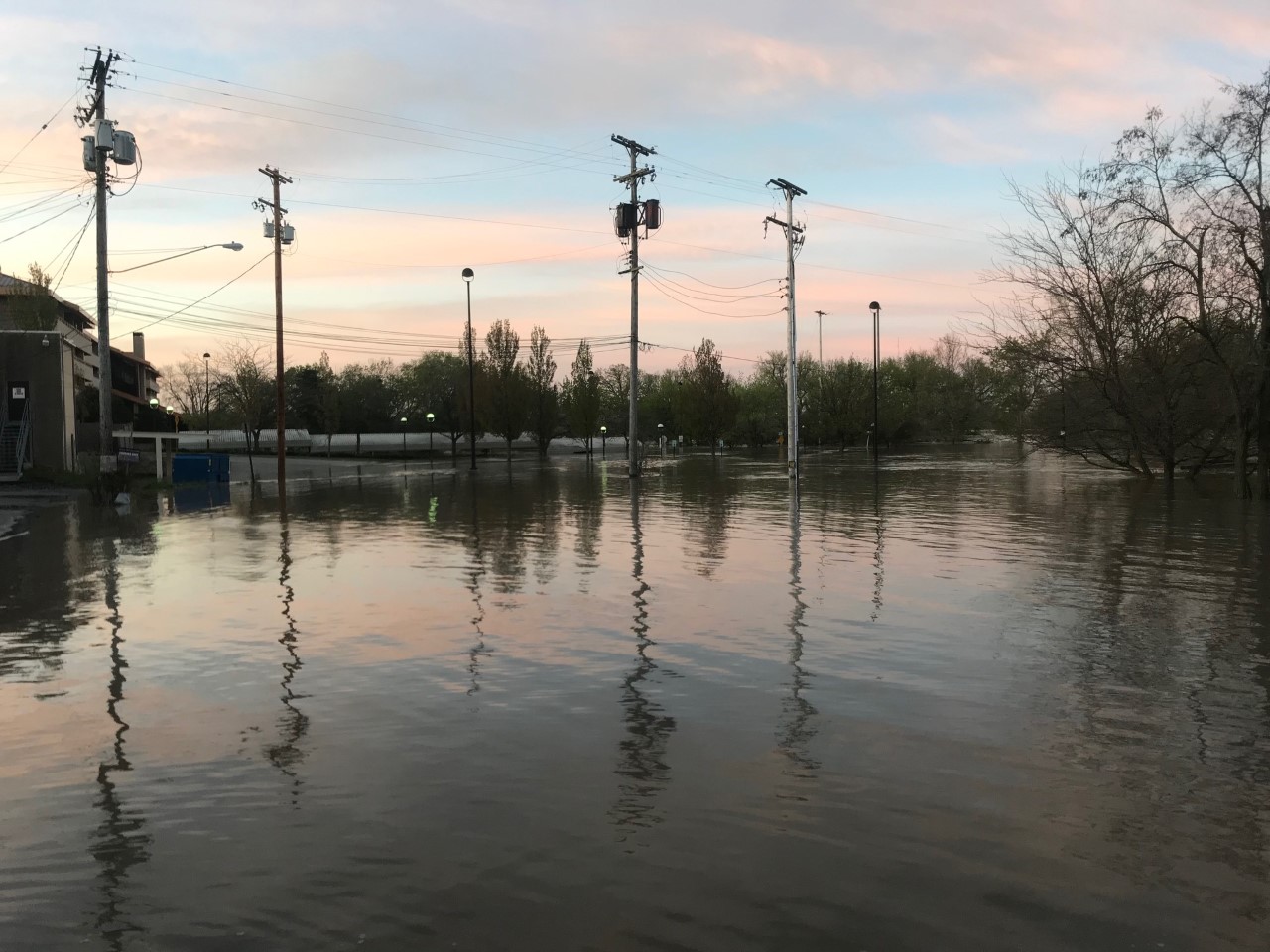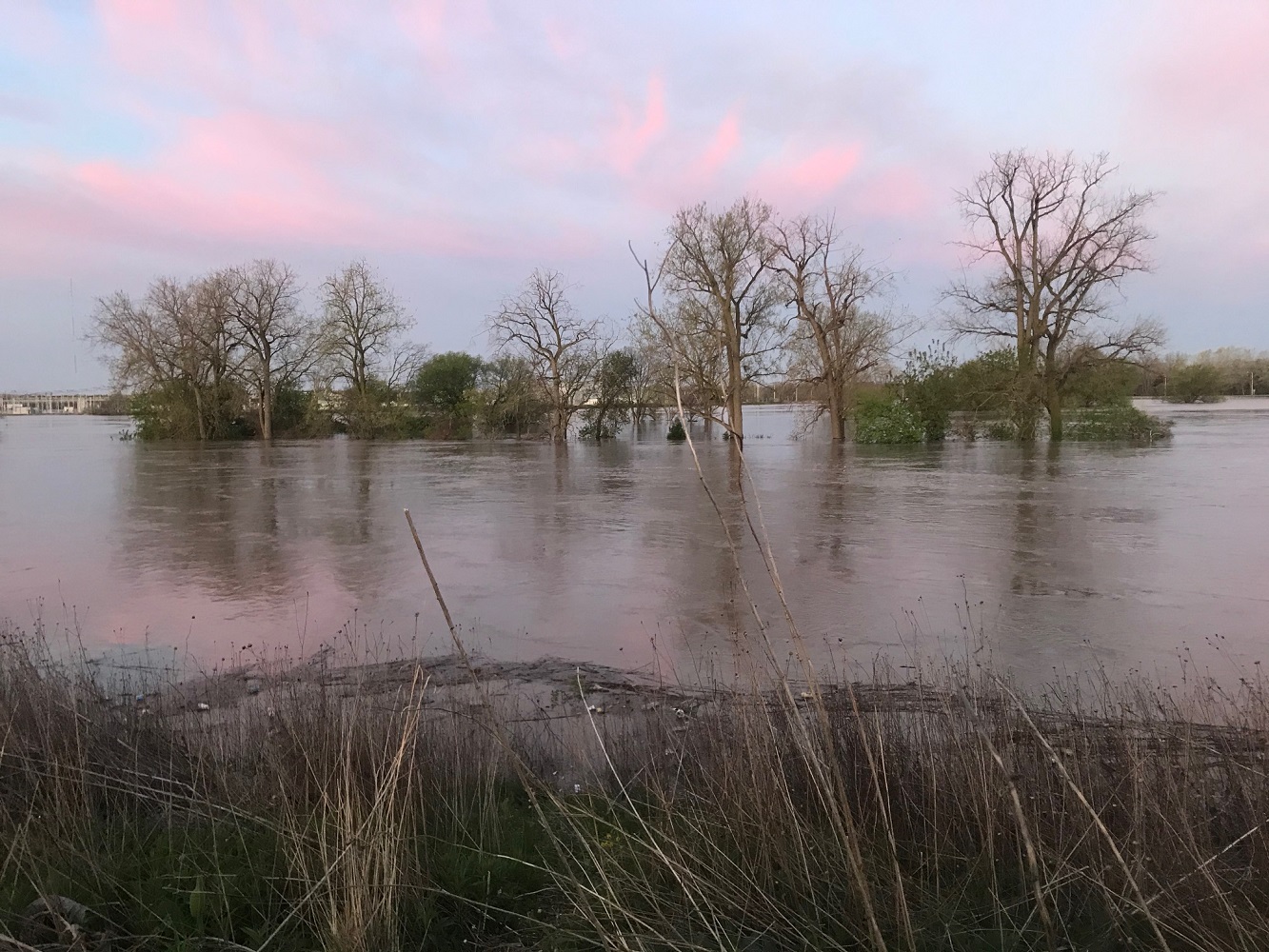High Water Levels On Tap This Winter As November Marks The Start Of A New Water Year
Recent years have brought record-breaking water levels in all of the Great Lakes, and one climate scientist says increased precipitation isn’t the only culprit.

The general public may be approaching the end of the calendar year, but climate scientists have just started a new year for monitoring water levels. Last year’s data indicates record-breaking levels in the Great Lakes, and it looks like the new year will bring more of the same.
Join the Water Levels Facebook Live event on December 4 at 1:30 p.m.
Drew Gronewald, an associate professor at the University of Michigan’s School for Environment and Sustainability, explains why each November marks the beginning of a new water year.

“In an effort to account for the overall water storage (of a particular body of water), we need to look at a time period where water might come into a system, accumulate and then leave and one of the big drivers of how water comes into a system is precipitation, snow and runoff,” says Gronewald.
When looking at what water levels looked like last year in Great Lakes — meaning the last water year, or November 2019 through November 2020 — Gronewald says that levels were about as extreme as they can get in terms of height. However, he notes that there may be one exception with Lake Ontario, which had very high levels in the 2019 water year. In looking at Lakes Michigan, Huron and Erie, Gronewald says that they all exceeded records last year from about March until July.

So, why are levels so high? According to Gronewald, “the number one part of the answer is the abundant precipitation we’ve had.” The second part of the answer is a bit more perplexing. He says prior to around 2013, the narrative around water levels in the Great Lakes was actually centered more on how low the levels were. But, Gronewald says that all changed in the winter of 2013/2014 when evaporation slowed way down. This, he says, was likely because of an unusually cold winter.
“A lot of scientists believe (recent years of slower evaporation are) related to the polar vortex that occurred that winter (2013/2014)… we can understand how a very cold winter might have triggered cooler water temperatures and slowed down evaporation… but our calculations are showing that low evaporation has persisted for several years,” explains Gronewald.
As far as what’s in store for water levels this winter, Gronewald says the “short story is throughout the next few months, water levels will remain above average and maybe even hit new record highs in the spring.”
Learn more about water levels in the Great Lakes and Detroit River with WDET’s Annamarie Sysling and Sandra Svoboda of Detroit Public Television at the Water Levels Facebook Watch Party on Friday, Dec. 4th at 1:30 p.m.
Trusted, accurate, up-to-date
WDET is here to keep you informed on essential information, news and resources related to COVID-19.
This is a stressful, insecure time for many. So it’s more important than ever for you, our listeners and readers, who are able to donate to keep supporting WDET’s mission. Please make a gift today.

